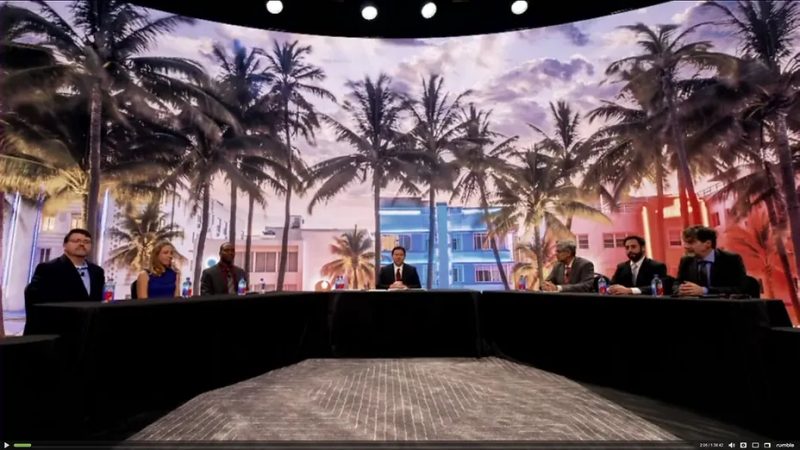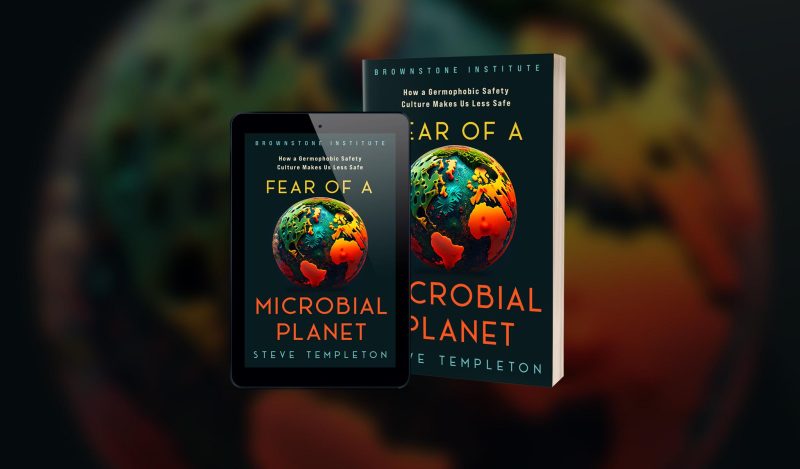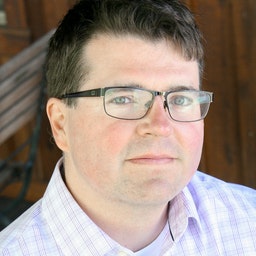For many years I had wanted to write a book, but as a young person I thought I needed to learn about something important before I wrote about it. After working as a research technician in a few labs at Washington University in St. Louis, I ended up at the University of Iowa studying immunology and infectious disease and running experiments using a model of coronavirus infection. I spent a lot of time there writing, but not the famed Iowa Writer’s Workshop-MFA-sitting in a coffee shop while discussing the finer points of James Joyce-type writing, but more the scientific paper writing that, like the former, few people read and even fewer enjoy.
Fast forward twelve years later, and after a stint with the CDC I was in Indiana, perfectly content with teaching medical students and managing a small lab (this time studying fungal immunology). In the back of my mind, I knew I still wanted to write a book. I was impressed by The Beautiful Cure by Daniel Davis, because he was able to make something so familiar to me—advances in therapeutic immunology—so impressive and exhilarating. Maybe I could write something like that, I thought. A historical account of early immunologists, perhaps.
But as you might already be aware, that didn’t happen. The Covid-19 pandemic hit in early 2020, and I was utterly unprepared for how people would react to it. Mass hysteria swept over the county faster than the virus ever could. People were behaving in ways that were previously thought irrational in most of the world—locking themselves inside for days, weeks, or months, spraying delivered groceries with bleach and wearing masks while jogging or riding bikes. Even worse, authorities and “experts” were demanding we all behave this way—like misanthropic germophobes. Everything closed that was deemed unessential, including some places considered essential to millions, like churches. The world had shut down, almost overnight.
Many people were horrified by these developments, and although the virus was clearly spreading and had the potential to do a lot of damage among the old and infirm, they saw the potential for even greater collateral damage in the young and healthy. This was a natural disaster that was going to affect (and infect) most everyone. Yet, unlike a hurricane, where no one says “We can stop it if we just listen to the experts,” authorities and “experts” easily sold an illusion of control to a hysterical public. Thus, mask mandates and social distancing guidelines ruled, in the absence of any credible evidence to support them. Whenever “the science” was lacking to back these measures, many scientists were willing to use dubious or lazy methods to favorably close the gap in exchange for instant coverage in the New York Times or NPR. Anyone who questioned the mob was instantly attacked, marginalized and discredited. Many who knew better stayed silent.
I was pretty reckless and naive and didn’t stay silent. Very early on, when the local media sought the view of local medical “experts,” I told them that I thought shutting everything down wasn’t going to work, and had the potential of causing great harm. I also thought leaders and the public would very quickly realize their error and reverse course within a few weeks. Incredibly naive, I know.
I set out to understand why people were behaving in a way that would’ve been seen as unhinged just weeks before. I could see everyone becoming germophobes, and I wondered if that behavior, once ingrained in the population, would ever go away. Could I reason people out of a position they didn’t reason themselves into? Probably not, but there were other people I admired trying, and I couldn’t just stand idle. So I decided to write a book, an idea that became Fear of a Microbial Planet.
I started writing articles for the local paper about herd immunity, low risks to children, and the awful trend of shaming people who got Covid, as if they did something wrong other than behave like humans. In “The Price of Being Human” I also mentioned the weak evidence behind public masking. Needless to say, it wasn’t well-received. My boss got some angry phone calls. Despite the local uproar, or maybe because of it, I’m still proud of that one.
I began writing other articles and eventually started my Substack page to showcase my writing, publishing pieces that would eventually become book chapters. I wrote about how public masking was viewed by scientists before the pandemic, how children were being harmed by Covid policies, and how a misplaced trust in “experts” was harming actual science.
To my surprise, people were actually reading these articles, sometimes by the thousands. In some cases, prominent people on Twitter like Martin Kulldorff and Kulvinder Kaur helped give my articles a big boost with their tweets, and Jeffrey Tucker of the nascent Brownstone Institute asked to republish my work on his website. Soon after, Jeffrey invited me to the inaugural Brownstone conference in Hartford in November, 2021. I got to meet some personal heroes like Martin and Jay Bhattacharya, and was interviewed by Jan Jekielek of The Epoch Times for his series American Thought Leaders. Things were moving quickly.

A month later I told Jeffrey my book idea, and he immediately offered to publish it, just on the heels of Brownstone’s first book The Great COVID Panic. Eventually, I agreed, and one year later sent him the manuscript. Four months later, on April 11, 2023, the book was published and it got a lot of push on social media from many of the prominent people I had met in the previous year. I had been involved in The Norfolk Group report “Questions for a COVID-19 Commission” which was sent to members of Congress that were interested in forming an investigatory body similar to the 9/11 Commission. The Norfolk Group also consisted of Martin Kulldorff, Jay Bhattacharya, Marty Makary, Tracy Beth Hoeg, Margery Smelkinson, Leslie Bienen, and Ram Duriseti. Although our document was used by the US Congress Select Committee on the Covid-19 Response, and although many of our group testified before that committee, no formal commission has been formed.

I was also invited to serve on the Florida Department of Health’s Public Health Integrity Committee by Governor Ron DeSantis, announced in December 2022 at a surreal press event in Palm Beach. This group is tasked with advising the Governor and Florida Surgeon General Joe Ladapo on seeking accountability for federal government agency actions during the Covid pandemic and how their relationship with pharmaceutical companies has resulted in regulatory capture and compromised oversight. Uncovering the full extent of this corruption could take years, and certainly won’t occur at the federal level, given the failure of the current and past administrations. Regardless of which administration gets a second chance, the appetite for Covid accountability simply won’t be there until at least 2028.

For book promotion, I had some fantastic appearances on podcasts, highlighted by my appearance with Dr. Jordan Peterson last June. Discussing the psychology of the pandemic response with him was a delight, and his ease of identifying “malignant narcissism” is contagious. Now I see it everywhere, especially on social media. Thanks, Jordan.
As I wrote in the Acknowledgements of my book, the most important part of the success of any book is the reader, and I’m grateful for your support. Thank you for reading, reviewing, and recommending my book and blog. As I have written in many of my signed copies, don’t be afraid to get dirty and take risks, but I’m sure that you, dear informed reader, already knew that.
Republished from the author’s Substack
Published under a Creative Commons Attribution 4.0 International License
For reprints, please set the canonical link back to the original Brownstone Institute Article and Author.









